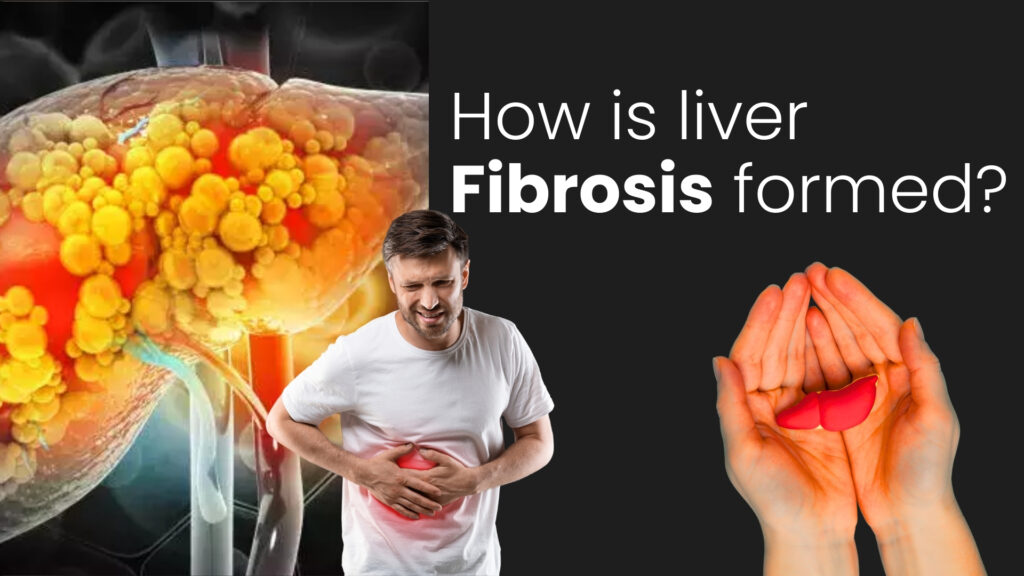Understanding liver fibrosis and its symptoms
When the liver experiences long-term severe damage or inflammation, it is unable to function properly, and collagen and proteins keep accumulating inside the organ, forming scar tissues. Excessive build-up of these scar tissues leads to the development of a medical condition known as liver fibrosis.
These scar tissues slow the blood flow through the liver, making it hard for the organ to filter blood, break down nutrients present in it, and get rid of old blood cells. With time, these harmful scar tissues can also replace healthy liver cells to a great extent or completely, leading to liver failure symptoms.
Fibrosis is considered to be the initial stage of liver disease. The condition usually causes no noticeable symptoms. That is why it can be tough for patients to know about it. However, in the later stages, there are certain signs that might indicate it.
What are some signs and symptoms of being affected by liver fibrosis?
Patients can experience the following liver fibrosis symptoms after the severe formation of the scar tissues in the organ;
-
Early Stage (Often Silent):
- There are no significant or observable symptoms present in the initial days of developing liver fibrosis.
- It is considered to be a silent stage.
-
Progressive Symptoms:
- Fatigue and weakness (persistent and unexplained tiredness).
- Unexplained weight loss.
- Discomfort or pain in the upper right belly.
-
Advanced Symptoms:
- Swelling in legs (oedema) or abdomen (ascites).
- Jaundice (yellowing of skin and white areas of the eyes, yellow urine).
- Easy bruising and bleeding.
- Being diagnosed with infections frequently.
- Formation of small, spider-like blood vessels on skin above the waist.
- Blotchy red palms.
- A poor appetite.
- Mental confusion or forgetfulness (hepatic encephalopathy).
Note – Regular check-ups are essential as symptoms often indicate advanced damage.
What is the main cause of liver fibrosis?
Liver fibrosis is a complicated condition that can be caused by many causes, including:
-
Chronic Liver Injuries:
- Hepatitis inflammation of the liver.
- Non-alcoholic fatty liver disease (NAFLD) is connected to obesity, diabetes, and cholesterol.
- Alcoholic liver disease from excessive alcohol intake.
-
Autoimmune and Genetic Disorders:
- Autoimmune hepatitis.
- Hemochromatosis (iron overload).
- Wilson’s disease (copper buildup).
-
Other Causes:
- Long-term exposure to toxins or certain medications.
- Bile duct diseases (e.g., primary biliary cholangitis).
Early diagnosis and dealing with the main cause are very important to stop further damage to the organ.
How do you stop liver fibrosis from progressing?
To stop liver fibrosis from progressing, it’s important to tackle the main causes, live a healthy life, and handle the condition well. Here are some ways to slow it down or stop it:
-
Address the Underlying Cause;
- Control Alcohol Consumption: Avoid or significantly reduce alcohol intake. Alcohol is one of the most prominent risk factors for liver damage.
- Manage Viral Hepatitis: Ensure proper management of hepatitis disease.
- Control Metabolic Conditions: Address obesity, diabetes, or high cholesterol, which can lead to fatty liver disease.
-
Maintain a Healthy Weight
- For patients with any type of liver disease, it is important to manage their body weight.
- Engage in physical activity every day. You can opt for walking or performing moderate exercise for at least 145 minutes per week.
-
Monitor Liver Health
- Regularly consult healthcare professionals for liver function tests.
- Follow up with lifestyle and dietary recommendations tailored to your condition.
-
Prevent Infections
- Get vaccinated against hepatitis if recommended.
- Take precautions to avoid other infections that can affect the liver.
Be cautious with over-the-counter medications and avoid processed or fried foods, as they can stress the liver. Making these changes can improve liver function, reduce inflammation, and slow or even reverse fibrosis in some cases.
How to reduce liver stiffness naturally?
Naturally, reducing liver stiffness requires lifestyle changes, dietary modifications, and home remedies. Here are some effective natural ways:
-
Follow a Balanced Diet
- Turmeric (Haldi): This Indian spice has anti-inflammatory and antioxidant properties. Adding a pinch of it to warm water or milk and consuming it regularly can benefit in harmonising liver enzymes. .
- Amla (Indian Gooseberry): Rich in vitamin C, it is one of the best fruits for detoxifying the liver.
- Lemon Water: To promote detoxification, patients can start their day with warm water mixed with lemon.
- Garlic: Known for its cleansing properties, raw garlic can help reduce liver stiffness. Incorporate it into your meals or chew 1–2 cloves daily.
- Leafy Greens: Include spinach, fenugreek (methi), and mustard greens (sarson) in your diet, as they help cleanse the liver.
- Beetroot: Enhances liver health and reduces stiffness. Add it to your salads.
-
Manage Fatty Liver;
- Control Sugar and Fat Intake: Avoid refined carbohydrates like white rice and sugary snacks. Instead, opt for whole grains such as brown rice and millet (ragi, jowar, bajra).
- Healthy Oils: In moderation, cold-pressed oils, like mustard or sesame oil.
-
Stay Hydrated;
Drink plenty of water to flush out toxins. Coconut water can also help keep you hydrated while providing essential electrolytes.
-
Regular Physical Activity;
Engage in yoga practices such as Bhujangasana (Cobra Pose) and Dhanurasana (Bow Pose) to stimulate liver function.
Herbal Drinks and Decoctions
Here are some herbal drinks that can benefit in easing liver fibrosis symptoms;
- Coriander Seeds Water (Dhaniya Pani): Soak 1–2 teaspoons of coriander seeds in water overnight and drink it in the morning.
- Giloy Juice: Known for its detoxifying properties, giloy can support liver health.
- Mint and Ginger tea: Boil fresh mint leaves with ginger to create a soothing tea that aids digestion and supports liver function.
Bharat Homeopathy – To cure liver fibrosis
These natural remedies and habits can definitely benefit liver patients. However, they are only short-term solutions and not a substitute for proper medical treatment. The point is patients restrict themselves from seeking allopathic cures due to the side effects and addictive nature of its medicines.
But what if you can achieve relief from liver fibrosis naturally with our homeopathic treatment for liver fibrosis? Yes, with the implementation of remedies made of natural substances such as plants and minerals, customised to the unique needs of patients, Bharat Homeopathy provides a safe and side-effect-free approach to curing liver fibrosis. Get in touch with us to learn more about our homeopathic medicine for liver fibrosis.


